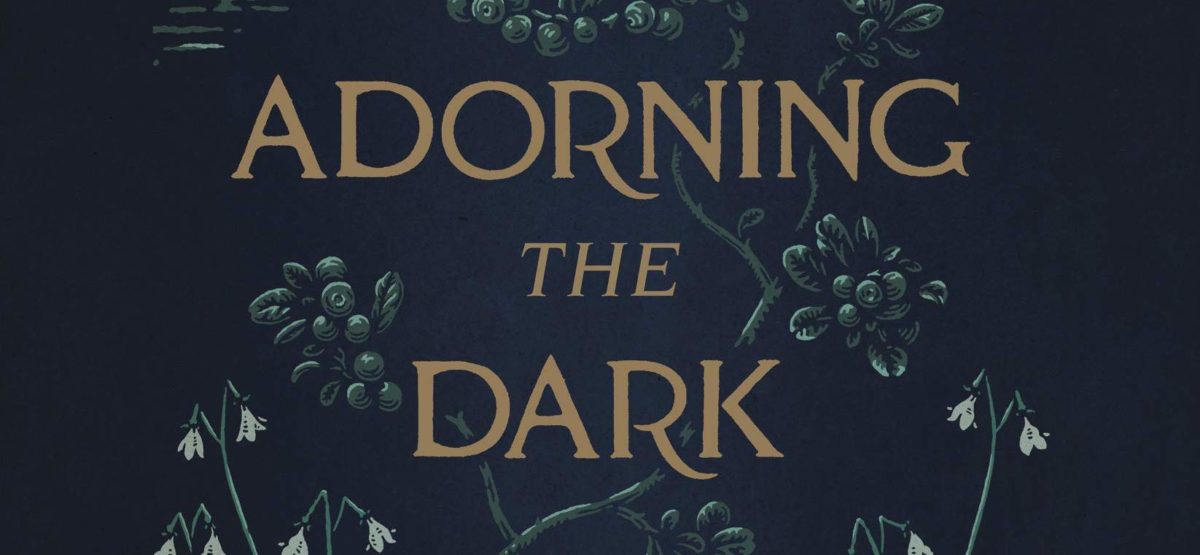Today is release day for Andrew Peterson’s book, Adorning the Dark: Thoughts on Community, Calling, and the Mystery of Making. I have a feeling most subscribers to The Habit Weekly are already familiar with Andrew Peterson, but in case you’re not, he’s a singer-songwriter, a novelist, the founder of The Rabbit Room, and a gatherer of people. He’s also one of my best friends.
For whatever reason, I’ve never really had creative mentors. But I have been blessed abundantly with creative peers and friends, many of whom I met through Andrew Peterson. “Art nourishes community,” Andrew often says. “And community nourishes art.” I know it to be true.
Adorning the Dark is a memoir of a creative life, full and wisdom and insight and good advice. The following excerpt, about friendship and the creative process and loving the audience (in this case, loving the audience with the deepest of loves) is characteristic:
“Write it like you would say it.”
I can’t tell you how many times over the years that maxim has snapped me out of whatever florid garbage I was writing…When I’m scribbling in a notebook the nonsense that I hope will become a not-unbearable song, when it’s late and I’m sleepy and I’m stuck, stuck, stuck, I remember those words: “Write it like you would say it.” It usually opens the door to the lyric I was looking for. It keeps me from putting on airs, which we’re all prone to do. People can spot a fake a mile away. It’s the difference between reading a speech from a podium and looking someone in the eye and telling them “I love you.” It communicates to the listener that you’re not pulling any punches but you’re not blocking any either. “Trust me,” it says. “This might hurt, but if we make it out alive we’ll be better for it.”
If I had to name one bit of advice that has brought me back to center more than any other, it would be that. “Write it like you would say it.” Who gave me that advice? Andy Gullahorn. And on each of his albums he provides example after example of honest, excellent songwriting that always invites me in to a face-to-face conversation that leads to something genuine and healing…
So when I sit down to write a song I often ask myself, as I have for years, what my songwriting heroes would do. That list includes Andy Gullahorn, reminding me to have the guts to write it like I would say it. It’s a principle that’s simple and yet packed with meaning, just like his songs. It’s not just advice for songwriting, though; it’s a good way to live. Dash all pretense; be who you are; kick down the walls; love the listener. It’s scary, sure. But good songwriting is a call to courage, on both sides of the exchange.
Another example from my own writing. When we were recording Light for the Lost Boy I had the basic piano part for what became “You’ll Find Your Way.” I wanted to write the song for my son Asher, who had just turned thirteen. After several false starts on verses that were broad and unnecessarily poetic, Gully suggested that I simply write it like I would say it. His point was this: don’t get philosophical. Don’t write the song for everybody. Just pretend like you’re talking. Pretend you’re looking him in the eye and opening your heart to your little boy. Try to forget that you’re writing a song and focus on the kid in front of you.
That night I sat at my piano with tears in my eyes and wrote, “When I look at you, boy, I can see the road that lies ahead. I can see the love and the sorrow.” The song opened itself up to me, and whether or not you like how it turned out, I managed to write it in a way that my thirteen-year-old kid could receive as love from his papa.
Adorning the Dark is full of this kind of thing—page after page after page—because this is how Andrew Peterson actually thinks about the world and his place in it. I’m mighty proud of my friend, for many reasons. I commend his book to you.








